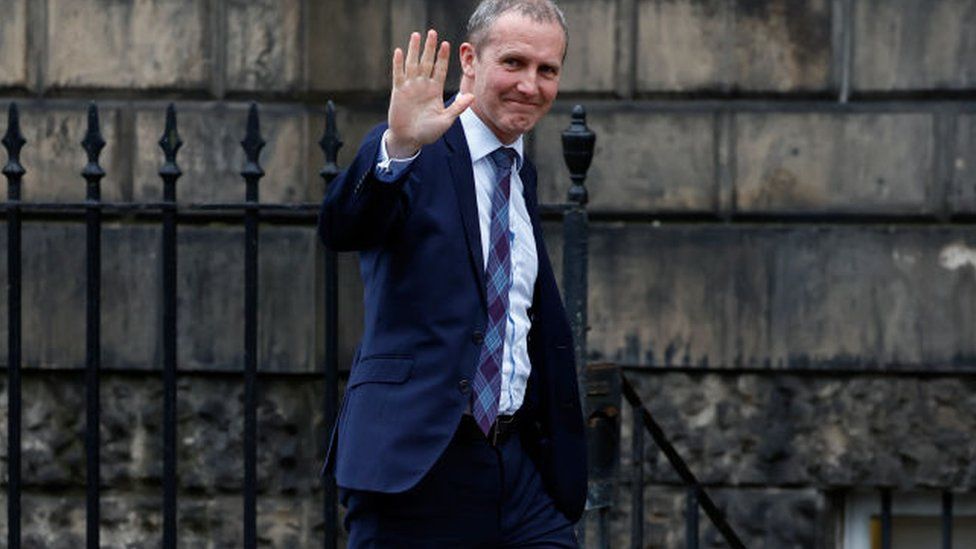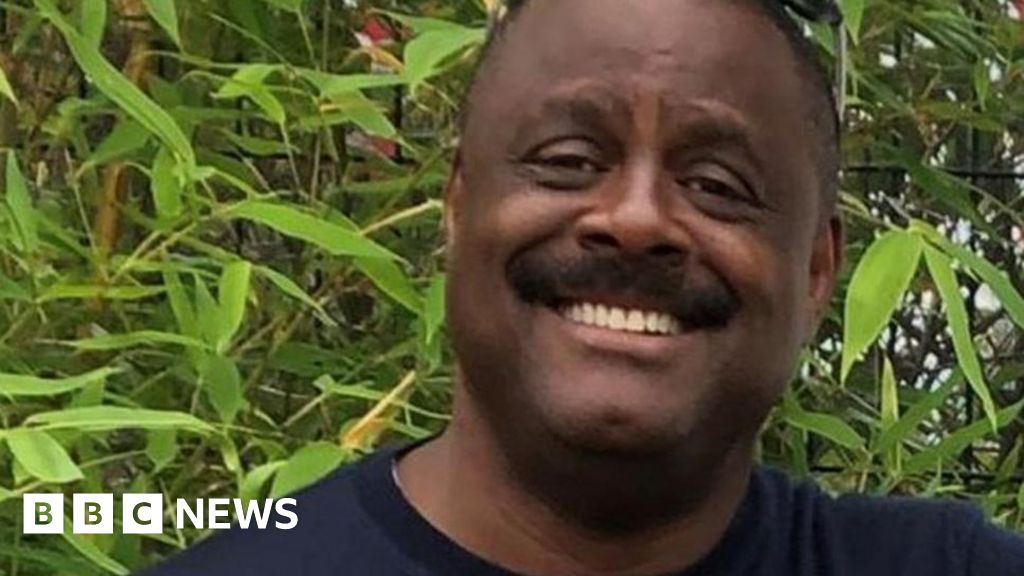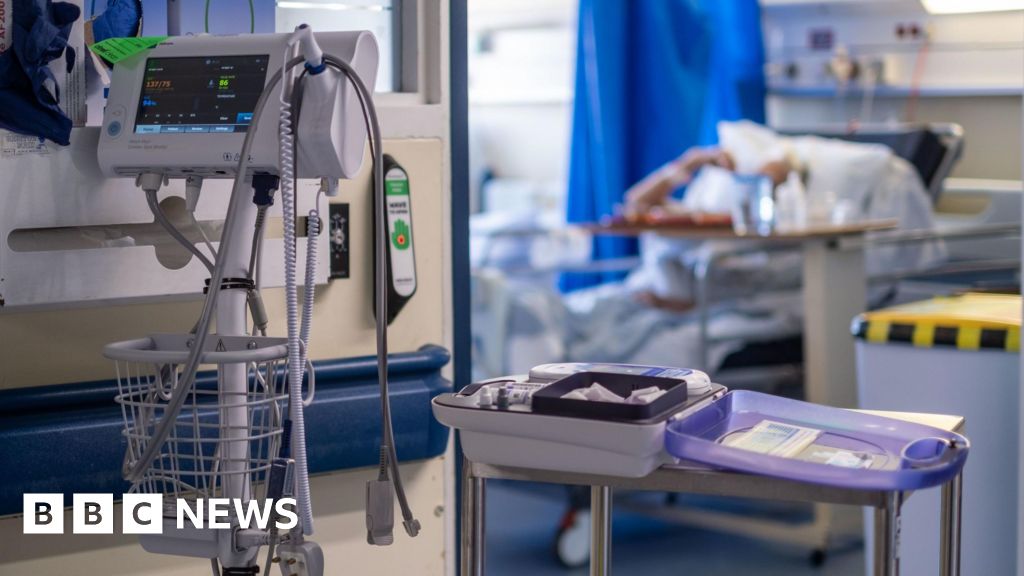ARTICLE AD BOX
 Image source, Getty Images
Image source, Getty Images
Michael Matheson is the new cabinet secretary for health
By Lisa Summers
Scotland Health Correspondent
Scotland's Health Secretary Michael Matheson does not have an enviable task as he takes over from new First Minister Humza Yousaf.
Over the past few months I have heard grim predictions from doctors and nursing staff about the future of the NHS.
We asked a range of healthcare experts where they see the NHS in the next decade.
'I look to the future with trepidation'
Dr Chris Williams, the joint chairperson of the Royal College of General Practitioners Scotland, has been a GP for 11 years.
He says: "The pressures I work under today mean I look to the future with trepidation"
Dr Williams says innovations and solutions could be implemented but progress is too slow when measured against Scotland's ageing population, widening health inequalities and intensifying demand.
He says the RCGP remains clear that the NHS should remain free at the point of use.
"However, looking 10 years ahead, I would expect greater limitations on patient choice," he says.
"Large swathes of the population will be living with several chronic conditions, so treatments offered on the NHS may be more restricted, with greater scrutiny of what is offered.
"Supporting these patients to live well may become a greater part of a GPs role."
'I never want to work another winter like that'
This winter has seen record numbers of people waiting excessive lengths of time to be seen in A&E. In the last week of December, more than 2,500 people waited half a day or longer to be dealt with, the highest level ever.
Dr Fiona Hunter, the vice chair of the Royal College of Emergency Medicine Scotland, told the BBC: "I never want to work another winter like that, and I don't want the patients to have to go through another winter like that within urgent care.
"There are patients at risk within the emergency department and throughout the hospital."
Dr Hunter says the lack of social care beds means record numbers of medically fit patients are waiting in hospital which means patients are struggling to get admitted for treatment.
"We need flow through the departments so that we can look after the sickest patients who come through the door," she says.
Dr Hunter is also concerned about the effect on NHS staff.
"We need to stop staff leaving in their droves, make our staff feel valued, allow them to come to work and do a caring job and leave the shift feeling that they've made a difference," she says.
"Not feel that that they've had to provide "corridor care" for patients and not be able to get to the sickest patients first."
Dr Hunter says she worries for the future.
"Are there going to be more patients arriving, self-presenting at the front door and nowhere to put them? It's a bleak outlook."
'Doing nothing will be pretty catastrophic'
Rachel Cackett, chief executive of the Coalition of Care and Support Providers Scotland, says how social care is provided needs to be radically rethought.
"Doing nothing or not doing enough, which is probably the situation we're in, will be pretty catastrophic," she says.
Ms Cackett says that some people will need to go into hospital but that should not be because of a lack of resources in the community.
"So we need to radically rethink how we do that, and how we work with people so that they have the choice and control over their lives to make the decisions that they need," she says.
"But it's not just about how we move deckchairs around.
"If we don't value the fact that these people are doing the most incredible, intense, sometimes quite difficult jobs, then we're not going to have a social care sector that's going to be able to move into a national care service.
"And we do need reform. But we also need to do it from a place of stability and security and sustainability or we will all fall over."
'NHS must remain free at point of use'
Amanda McCabe, a consultant paediatric surgeon and a council member at the Royal College of Surgeons of Edinburgh, says we must ensure the NHS remains free at the point of use.
"This is a lasting principle that we simply have to hold on to," she saysys
"It's important that the NHS is preserved - not only in history so we never lose sight of its fantastic achievements to-date - but also for the future."
She says it is crucial that the NHS keeps pace with the "amazing" developments happening in healthcare.
"The consequences of not doing so, and letting the system fall behind, would not be good for our society," she says.
Miss McCabe says she'd like the NHS to be a "happy place" where not only the patients are taken care of, but also the workers.
"There is a huge amount of goodwill in the NHS and it's important that this isn't eroded by the pressures being put on healthcare workers," she says.
"Steps must be taken to ensure NHS staff are valued, nurtured, and supported."
'Can we really afford to provide everything that is available?'
Prof Andrew Elder, president of the Royal College of Physicians of Edinburgh, says health and social care have changed immeasurably since 1948 when the NHS was established.
"Cradle to grave" coverage now extends from pre-term infants as young as 22 weeks of age to adults over the age of 100 years, he says.
"Organ transplant, kidney dialysis, heart valve and coronary artery surgery, special care baby units, in vitro fertilisation (IVF), cataract extraction and joint replacement did not exist in 1948," Prof Elder says.
"We have a myriad of new drugs, used to prevent, cure and palliate illness, disease and suffering.
"We can do many more tests too - in 1948, X-rays were our only imaging technique, but we now have ultrasound, CT, MRI and PET scanning."
Prof Elder says these advances are welcome and there will be many more to come.
But medical advancements also present the biggest challenge for all health services, he says.
"Can we really afford to provide everything that is available, for everybody, across their entire life course?
"And if we cannot, how should we decide what we can provide?
"Although politicians will have views, and doctors can advise, the public must have a say."

 2 years ago
79
2 years ago
79








 English (US) ·
English (US) ·